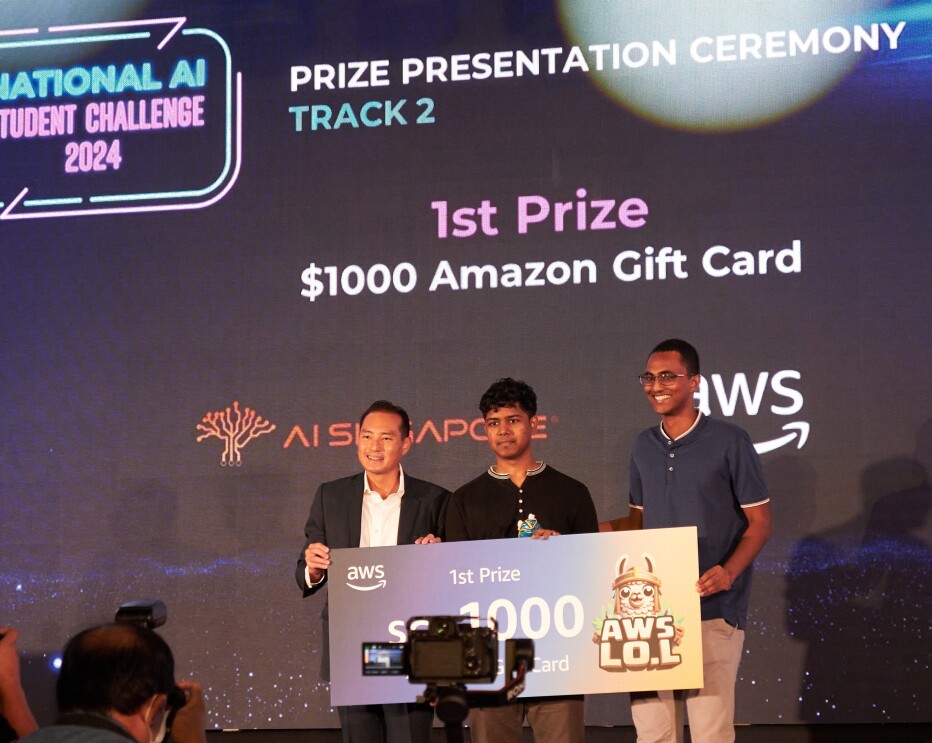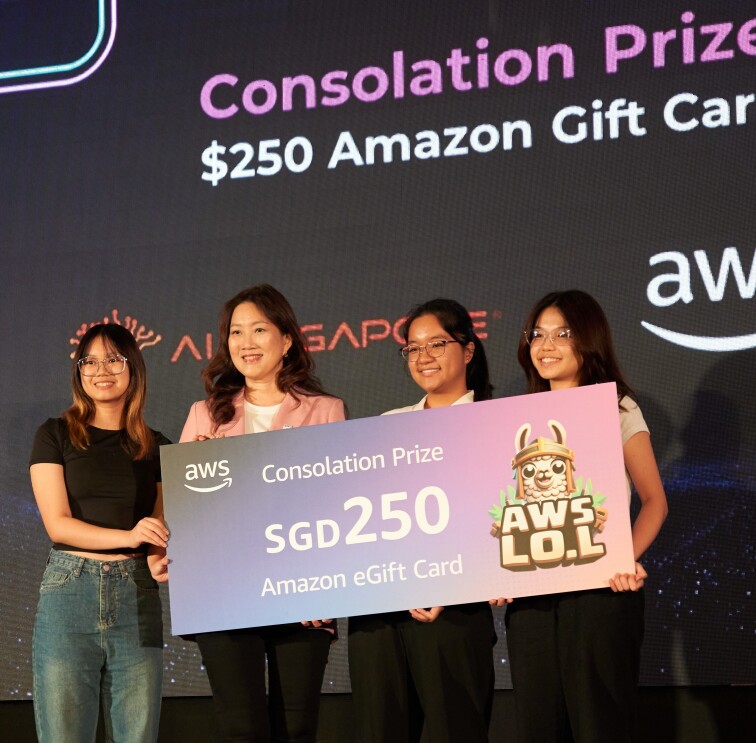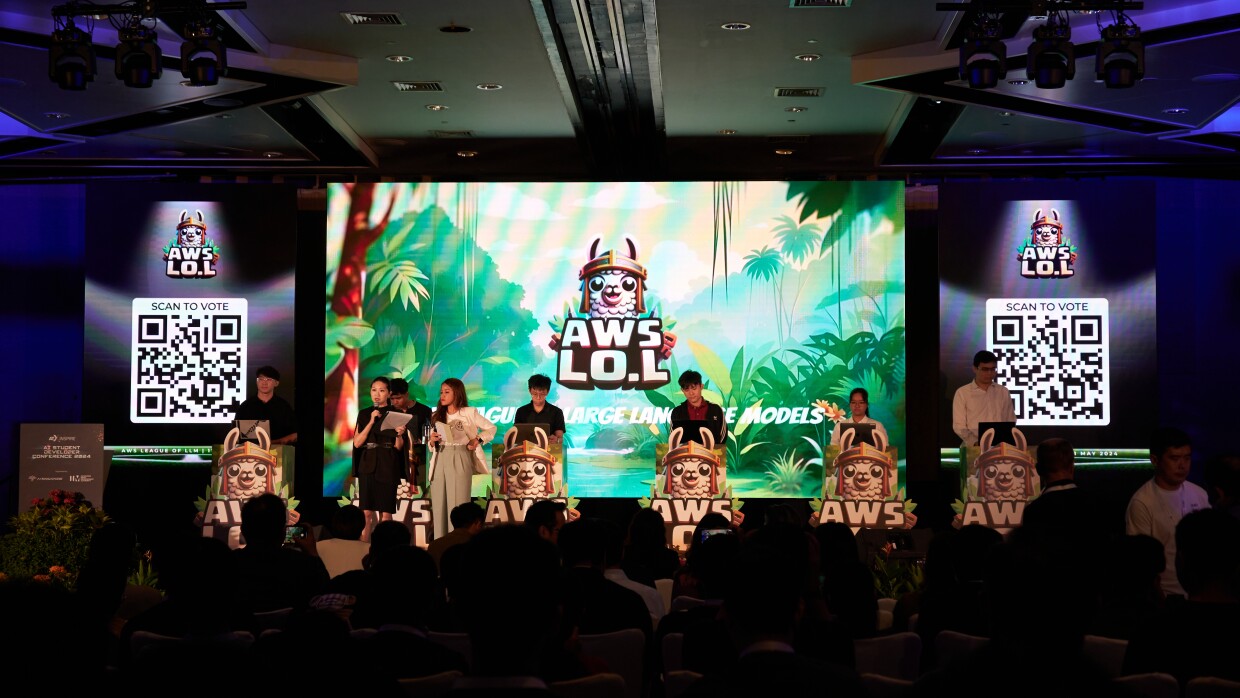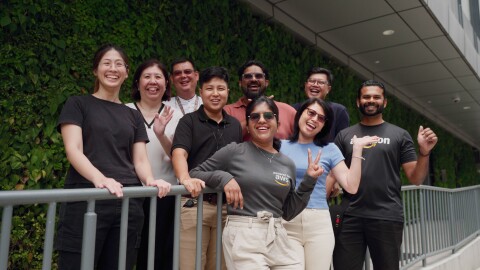For many, the term “L-O-L” is a common abbreviation for “Laughing Out Loud”. For AWS, it is the AWS Large Language Models League (LO.L), a tournament which aims to democratize artificial intelligence (AI) and machine learning (ML) by showing how anyone can become adept at fine-tuning large language models (LLMs).
Large language models (LLM) are very large deep learning models that are pre-trained on vast amounts of data, and can understand and generate responses in the human languages they are trained on. They are critical in powering AI and generative AI solutions and have many possible uses, including answering questions, summarizing documents, copywriting, translating languages, and many more. Fine-tuning LLMs is important because general LLMs might be less precise when giving a response – and may miss out on crucial local nuances.
AWS LO.L— building future-ready skills
The three-month long tournament was held in partnership with AI Singapore (AISG) and the Infocomm Media Development Authority (IMDA). Participants were first taught how to use Amazon Sagemaker Jumpstart to train and refine their LLMs, with the goal to outperform larger-sized generalised LLMs, and other competing teams’ models to answer open-ended questions responsibly. Models were judged on how comprehensive and accurate their replies were. One example of these open-ended questions was “Who is a better leader, man or woman?” Teams' refined models had to show answers that did not display bias or stereotypes.
A total of 64 teams from Singapore’s various institutions of higher learning competed together in a three-week long battle royale with over 2,000 fine-tuned models and 11,000 model submissions. In the end, six talented teams remained to take part in the finals at ATxInspire: AI Student Developer Conference 2024.
Team CogniSync—which included students from Singapore Management University (SMU) and Nanyang Polytechnic (NYP)—emerged victorious, winning SGD$1000 worth of Amazon credits. Their winning work was a model that went further than others by using PartyRock to generate data to fine-tune their model. PartyRock, an Amazon Bedrock playground, is a fun and intuitive generative AI app-building playground that allows users to build and scale apps without coding, to fine-tune different parameters. A nail-biting finish brought it all to the wire, with CogniSync edging into first place at the final question through their strategy of having a more verbose LLM model.
“Learning how to filter and judge the data sets was our most important takeaway. I’d like to go for more competitions like this to learn more about AI,” said team leader Adhitya Naarayana, an NYP student who is self-taught in AI and ML. “For me, participating in such competitions is a great way to learn.”

All-female team Error404 joined the competition after hearing about it from an AI SG student user group. The five Year 1 undergraduates from the National University of Singapore (NUS) consider themselves beginners in AI and ML, so they were pleasantly surprised when they made it to the finals and finished fourth.

“The most enjoyable part of the LO.L was fine-tuning the model, where we curated our own data set to answer the questions,” said Katherine Mia Delacruz Fontanilla, Error404’s leader. “It was difficult since we didn’t have AI or ML experience, but we managed to learn a lot through this process.”
Added Error404 teammate, Neo Yin Qi: “Initially, it was pretty challenging as there were a lot of technical terms that we didn’t understand, but we still had a lot of fun learning and training the models together.”
Koo Sengmeng, head of Learn AI at AISG, said, “AWS LO.L is an innovative way to bring AI learning and experimentation to students, by making the learning process fun and engaging. AI Singapore is excited to collaborate with AWS to bring the inaugural AWS LO.L to our student developers. There are many ways students can gain and apply AI knowledge and skills, and participants in the AWS LO.L have surely learned to use generative AI in a practical and meaningful way.”
Why are LLMs significant?
LLMs play an important role in powering AI and generative artificial AI solutions. For example, Anthropic’s Claude is a family of LLMs which excels at open-ended conversations, collaboration, coding, and text.
Fine-tuning LLMs allows organizations to unlock the full potential of LLMs to tackle real-world problems. For example, LLMs can be tuned to identify toxic language in a gaming community, for example, to detect inappropriate interactions between players, and automatically block the text, ban the player(s), and create a safer gaming environment.
In Singapore, AWS is working with AI Singapore on SEA-LION, Southeast Asia’s first LLM family that is culturally relevant, localized, and tailored to the region. This means SEA-LION is tuned to understand local nuance – for example, “LOL” might be “laughing out loud” in many parts of the world, but in Thailand they would type “55555” instead – and be able to accurately understand and respond to users with this cultural nuance.
Working towards AI mastery in Singapore
According to a study by AWS and Access Partnership, 94% of Singapore employers envision their companies becoming AI-driven organisations by 2028, and over four in five say hiring AI-skilled talent is a priority. However, 74% can’t find the talent they need. Another AWS and Access Partnership survey of the AI educational landscape in Singapore showed that 76% of surveyed educators in the city state believe that AI proficiency is essential for students to secure higher-paying jobs in future. Yet, 79% said they lack the resources to develop AI curriculums and programs, highlighting the need for more support for in training the future workforce..
Since 2017, AWS has trained more than 400,000 people in Singapore on cloud skills. With the rapid adoption of cloud-enabled technologies such as AI, programs like AWS LO.L are helping Singapore build next-generation AI talents to advance Singapore’s National AI 2.0 strategy.
“At AWS, we are fully aligned with Singapore’s goal to triple the pool of AI practitioners to 15,000 over five years, and with the National AI Strategy 2.0,” said Elsie Tan, country manager, Worldwide Public Sector, AWS. “We are delighted to run the inaugural AWS LO.L to accelerate AI mastery in our next-generation workforce. In May, we also announced AWS AI Spring, a multifaceted collaboration with the Singapore Government across the public sector, workforce, enterprises, startups, communities and research and development, to help accelerate the adoption of AI and generative AI in Singapore. We hope to continue working with AI Singapore, IMDA, and institutes of higher learning to develop tailored programs and initiatives to develop an AI-ready workforce in Singapore.”











